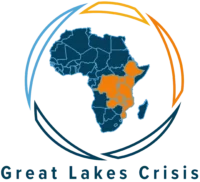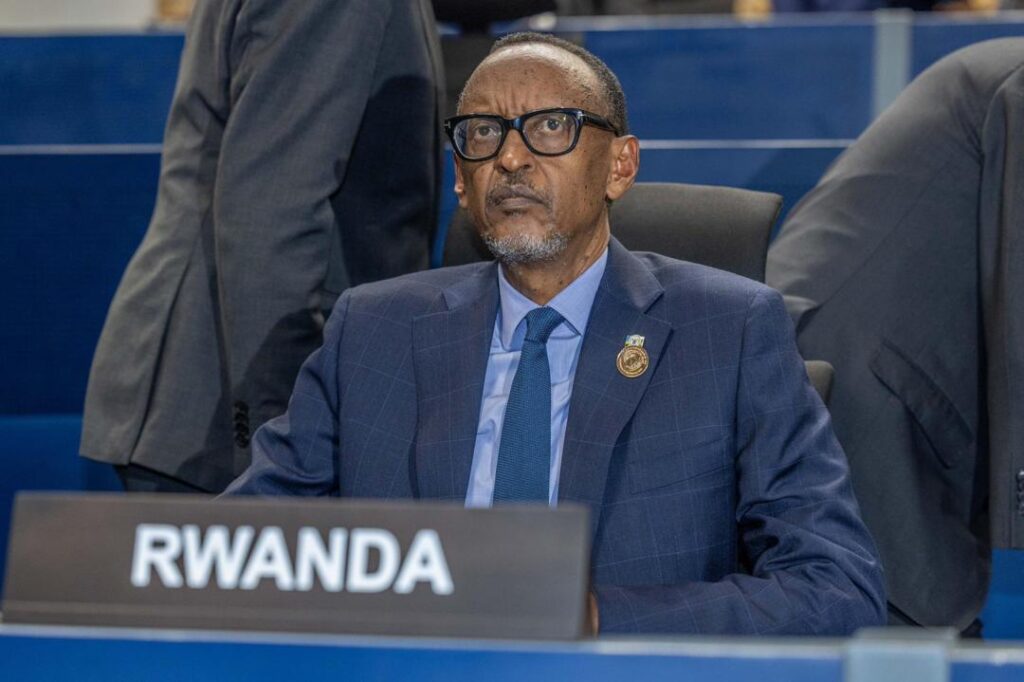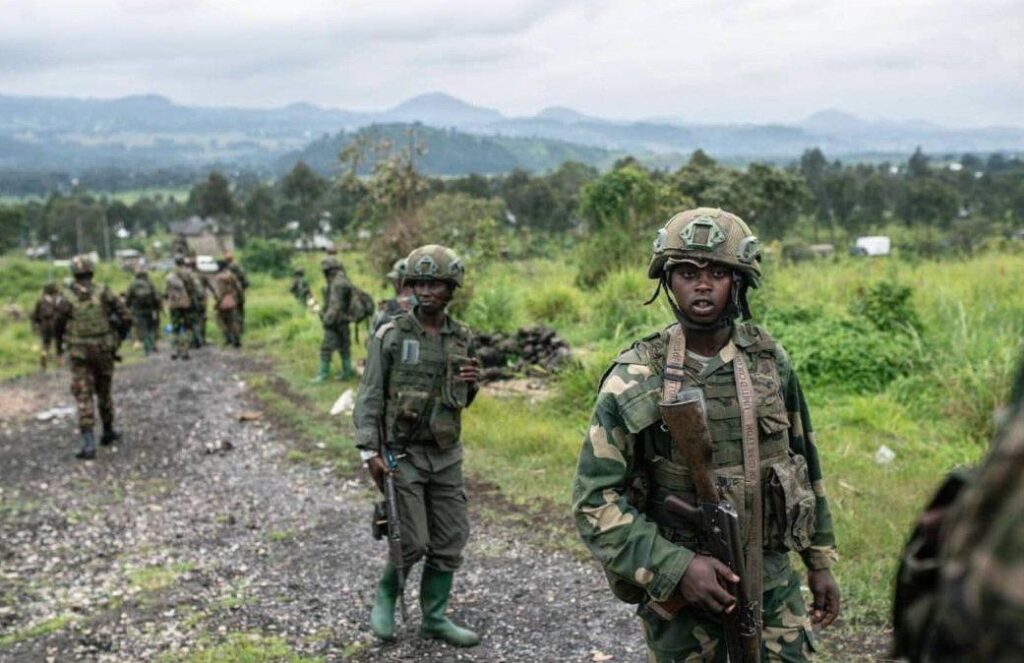In the troubled province of Ituri, in the Democratic Republic of Congo (DRC), history seems to be making a dangerous comeback. Thomas Lubanga Dyilo, a name synonymous with war crimes and the country’s painful legacy of conflict, has re-emerged, not as a reformed political figure or a peacemaker, but as the alleged leader of a new politico-military movement. Accused by the DRC government of forming the Convention pour la Libération Populaire (CLP) from Uganda and reportedly recruiting on behalf of the notorious AFC/M23 rebel coalition group(Radio Okapi,2025), Lubanga’s return threatens to reignite tensions in an already volatile region.
This article sheds light on Lubanga’s controversial return, his motivations, and his alleged connections to regional armed groups. It also explores the political frustrations that may be driving him back into rebellion and the broader implications for peace and stability in the Great Lakes region.
A war criminal’s return to the spotlight
Thomas Lubanga is no stranger to conflict. On March 14, 2012, he became the first person ever convicted by the International Criminal Court (ICC), found guilty of war crimes for enlisting and using child soldiers in his militia, the Union of Congolese Patriots (UPC). For many, his conviction symbolized a long-awaited step toward justice and accountability in the DRC’s ongoing conflicts.
But his time behind bars was short-lived. Released in March 2020 after serving eight years of his 14-year sentence, Lubanga quickly sought to reposition himself politically. Claiming to be a victim of injustice, he framed his conviction as politically motivated, a narrative that gained sympathy among certain factions within the country. Within two months of his release, on the 19th of november 2021 to be precise, Lubanga was received by President Félix Tshisekedi alongside other former warlords, supposedly to contribute to peace efforts in Ituri as shown on the images below.
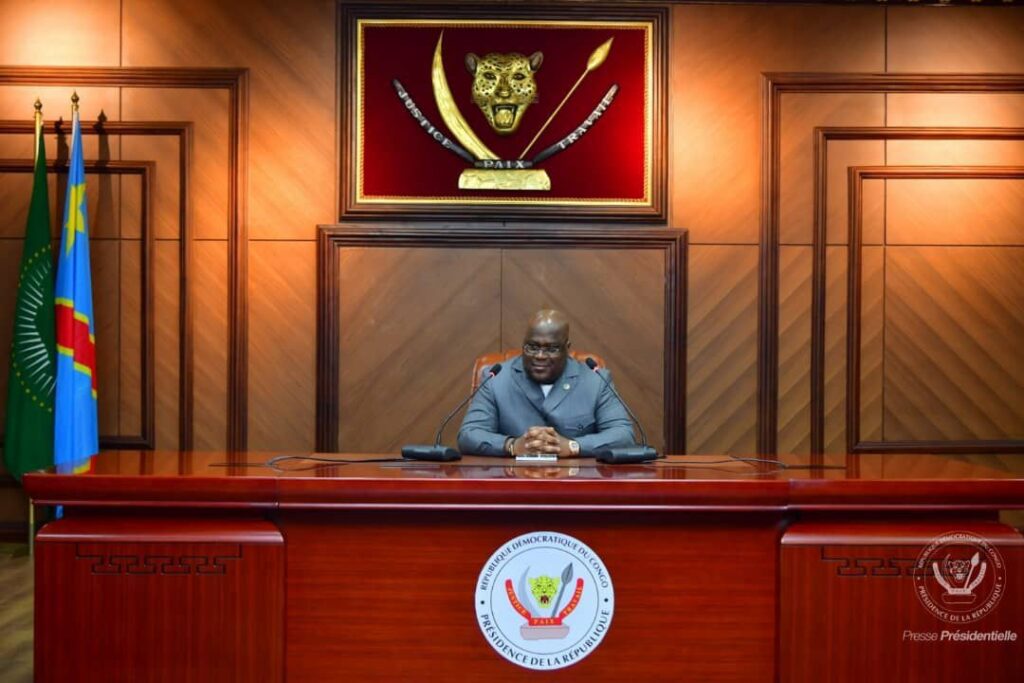
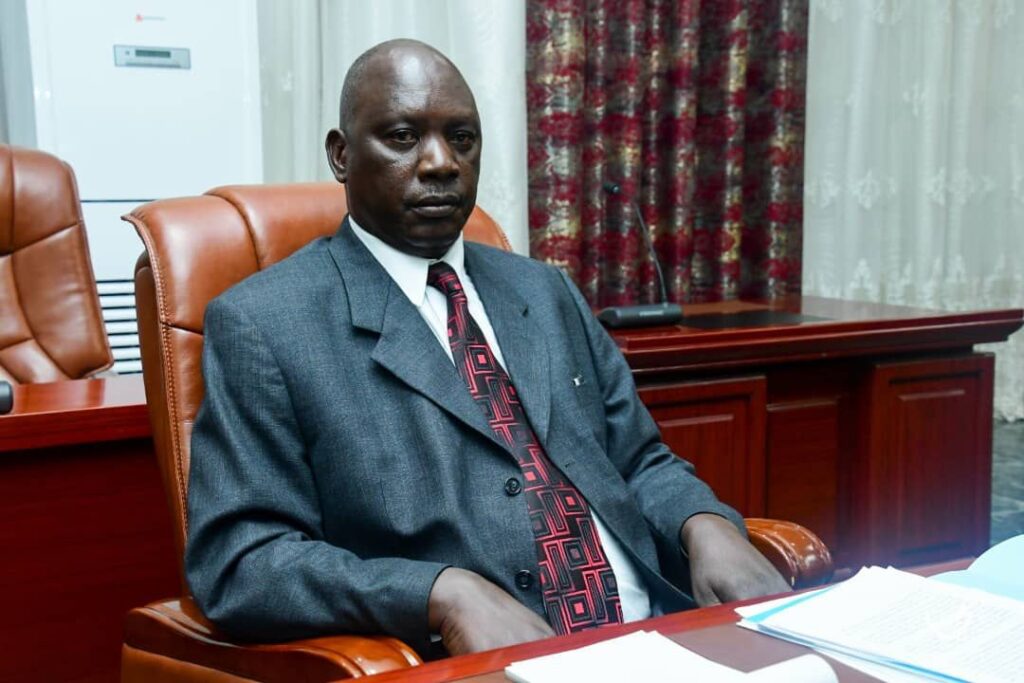
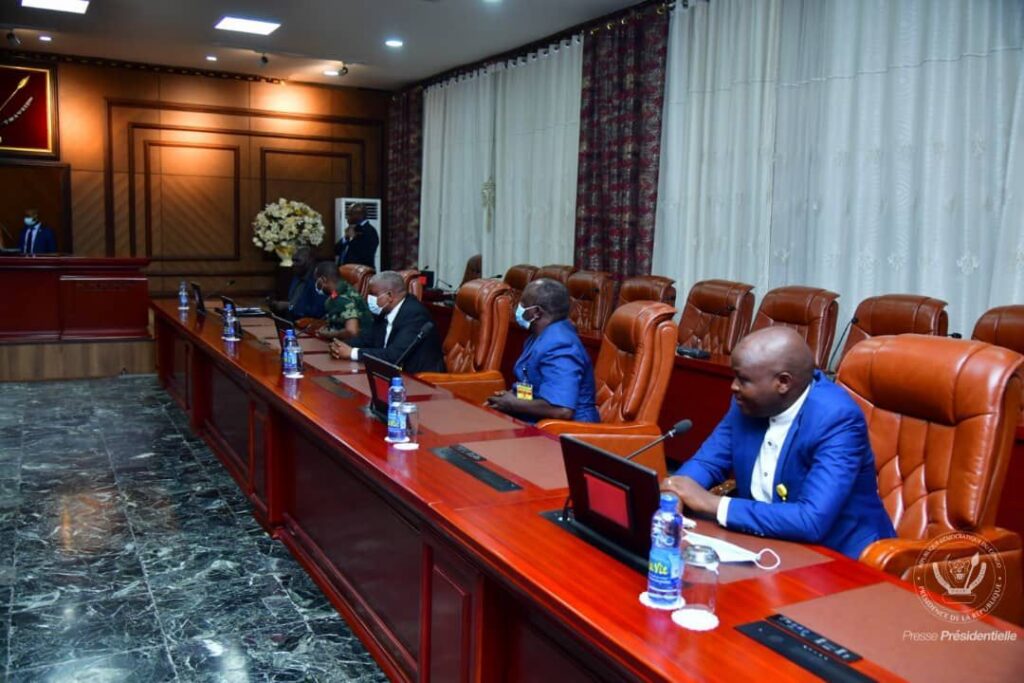
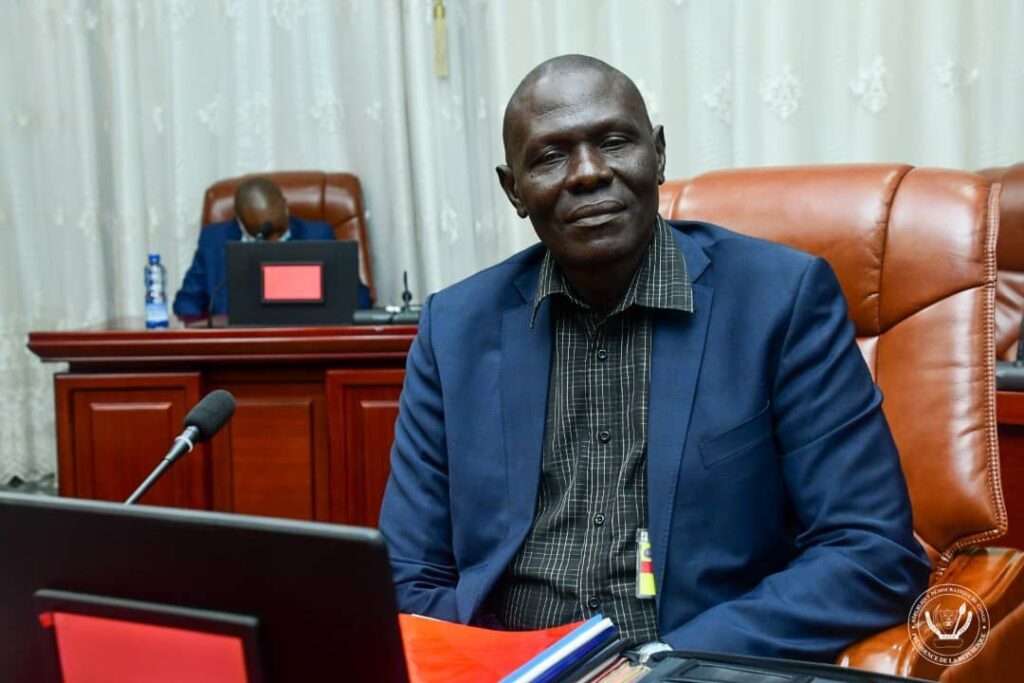
According to the offical X account of the presidence of the DRC; the president created the Task force for pacification ,reconciliation and development of ituri and Thomas Lubanga was put in charge of the newly created structure. The TASK force ,an active structure of civil society was engaged to lead actions on the ground to help President tshisekedi to eradicate negative forces who sow violence and terror in this part of the eastern Democratic Republic of the Congo. (Présidence RDC, 2025)
Political Ambitions and Rising Frustration
Despite his attempts to rebrand himself, Lubanga’s political aspirations soon hit a wall. Elected as a member of parliament in the last controversial general elections held on December 20, 2023, his victory was swiftly annulled due to legal irregularities. This abrupt political rejection appears to have deepened his frustration, pushing him back toward familiar, more dangerous methods of influence.
In the aftermath of his failed political bid, allegations of Lubanga’s involvement in armed activity began to surface. The Congolese army accused him of supporting the Zaire militia, an armed group implicated in ongoing violence in Ituri. Though Lubanga denied any association, a report from United Nations experts painted a different picture. According to the report, Lubanga left Ituri and relocated to Uganda, where he allegedly strengthened his ties with the AFC/M23 coalition; a notorious rebel alliance long accused of destabilizing eastern DRC.
The AFC/M23 Connection: A Dangerous Alliance
The prospect of Lubanga collaborating with the AFC/M23 raises serious alarms. The AFC/M23, a rebel coalition group with allegations of foreign backing, has been a key player in the DRC’s conflict landscape. A recent UN report accused Lubanga and another Ituri Warlord;Kahwa Panga,currently living in Uganda, of recruiting young people in Uganda on behalf of the AFC/M23.
The United Nations expert group accused Lubanga of playing a “key role” in strengthening ties between the Zaïre armed group and the Rwanda-backed AFC/M23. It was highlighted that, as the “moral authority” of the Zaïre group, he allegedly facilitated the recruitment of fighters, including former members of his UPC militia, and even established training camps in Ituri and Uganda with Rwanda’s support (Rodrigue , 2025), a development that could signal a dangerous escalation in the region’s instability.
Charles Kakani, the first deputy of Thomas Lubanga, contacted by phone from Kampala by Radio Okapi, denied any collaboration with the AFC/M23 and clarified that the armed wing of this movement is called the “Force for the Popular Revolution” and not Zaïre.(Okapi,2025)
Such alliances not only complicate efforts to stabilize Ituri but also risk further straining the already fragile relationships between the DRC and its neighbors, particularly Uganda and Rwanda. Should Lubanga’s new CLP movement merge its operations with the AFC/M23, it could lead to a well-coordinated insurgency with far-reaching consequences.
Efforts for Peace Amid Rising Tensions
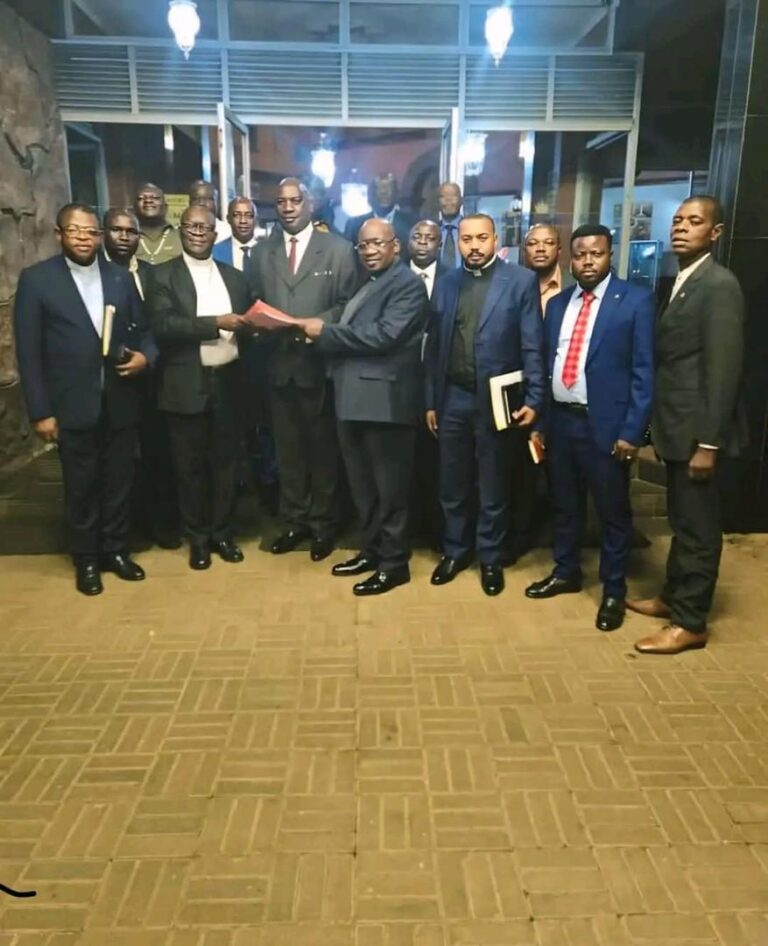
As depicted on the image above, In an attempt to prevent further escalation, a delegation from the Conférence Épiscopale Nationale du Congo (CENCO) and the Église du Christ au Congo (ECC) on 4th March 2025 met with Lubanga and other exiled ituri leaders,menbers of parliament, and other in Kampala after consulting Ugandan President Yoweri Museveni. The goal of the religious leaders is to rally Thomas Lubanga to their initiative called the “Social Pact for Peace” and prevent the former rebel leader from getting militarily involved in the ongoing conflict and making it worse (RFI Afrique, 2025).
While dialogue remains a necessary approach, there’s a growing question of whether Lubanga; a man with a documented history of violence and political manipulation can genuinely commit to peace. Or is his new movement merely a prelude to further instability and conflict in Ituri?
A Test of Credibility for the Congolese Government
Beyond the immediate threat posed by Lubanga’s actions lies a broader issue; the credibility of the Congolese government’s peace efforts. By engaging with figures like Lubanga, President Tshisekedi’s administration undermined its own commitment to justice and the rule of law. The decision to welcome a convicted war criminal into leading a task force meant to seek peace, only for him to allegedly reignite conflict, raises serious questions about the government’s strategy and judgment.
Conclusion: A Familiar Threat, A Fading Hope
Thomas Lubanga’s resurgence as a rebel leader is a stark reminder of the DRC’s unresolved conflicts and the ever-present danger posed by recidivist warlords. His ability to exploit political frustrations and forge alliances with well-established insurgent groups like the AFC/M23 underscores the region’s fragile peace.
If left unchecked, Lubanga’s actions could plunge Ituri and the broader Great Lakes region into yet another devastating cycle of violence. The international community, regional leaders, and the Congolese government must act swiftly and decisively to prevent this looming crisis.
The question is no longer whether Thomas Lubanga remains a threat ; that much is certain. The real question is whether this renewed rebellion can be stopped before it’s too late.
Works Cited
Jef , N. (2025, 03 06). Radio Okapi. From L’armée accuse Thomas Lubanga de créer une nouvelle rebellion: http://www.radiookapi.net
RFI Afrique. (2025, 03 06). Des discussions entre des responsables religieux et l’ex-chef de guerre Thomas Lubanga. From http://www.rfi.fr
Rodrigue , G. (2025, 01 13). Thomas Lubanga accusé de soutenir le M23. From DW: http://www.amp.dw.com
Présidence RDC. (2025). Le president de la republique a recu Thomas Lubanga. Kinshasa: X official account.
